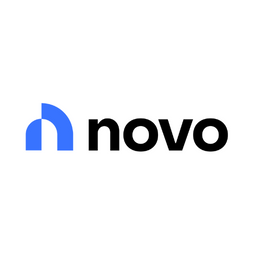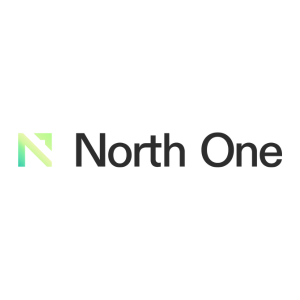The advantages of a business owner are easy to list. You get more control over your schedule, get to do work that you enjoy, and have a higher earning potential. These are some risks involved, as with any venture worth pursuing.
If you want to start a business or grow your existing company, you will need business banking. Business owners get more out of bank accounts designated for business use compared to relying on their personal accounts for their business activities. This guide will cover how business banking works, what to look for when comparing options, and the advantages of getting started with business bank accounts.
Open a Free Business Checking Account

Discover the innovative banking experience with bunq, the mobile bank that puts you in control of your money.

From savings accounts to personal loans, Truist has all your banking needs covered. Learn why many trust Truist for their financial needs.

Need a banking partner that understands your business needs? Discover Bluevine business checking account and financing solutions.

Discover 3S Money, a leading global banking solution for businesses that offers secure and efficient financial services.
What is Business Banking?
Business banking is just like regular banking but for your business. You can create bank accounts for your company and access resources you normally cannot access with a personal bank account. Business banking gives you access to business loans with competitive terms and rates.
Should You Use a Personal Bank Account for Your Business?
You technically can use a personal bank account for your business. No one will stop you from using this account, and some small businesses can make it work. However, it’s much better to use a business banking account instead.
For starters, a business bank account has more features. You can create invoices, access better loans, make the tax season more efficient, and tap into other benefits. A personal bank account is like a bicycle, while a business bank account is like a car. You can get to many destinations with a bicycle or a car, but the car will get you further within a shorter amount of time.
Separating your personal and business finances is also critical for limited liability protection. When you turn your business into an LLC, your personal assets are safe from any legal disputes your company incurs. If you are in an industry where legal disputes can become frequent, such as real estate, it’s good to have a buffer that protects your personal finances. Only having a personal bank account means everything is up for grabs if you get involved in a legal dispute.
A business bank account can also help you build business credit. While you can get great loans with a high FICO score, business lenders will look at your business credit score. It’s different from a personal credit score, and having a high business credit score can help you get better loans. Business owners tend to have access to higher sums of money than consumers without businesses if each of them needs to take out a loan.
Open a Free Business Checking Account

Discover the innovative banking experience with bunq, the mobile bank that puts you in control of your money.

From savings accounts to personal loans, Truist has all your banking needs covered. Learn why many trust Truist for their financial needs.

Need a banking partner that understands your business needs? Discover Bluevine business checking account and financing solutions.

Discover 3S Money, a leading global banking solution for businesses that offers secure and efficient financial services.
What Are The Types Of Business Bank Accounts?
Business owners can choose from several types of business bank accounts. These are some of the highlights.
Business Checking Account
A business checking account is optimal for short-term expenses. You can quickly access these funds and use them to cover various operating costs. Business checking accounts tend to have lower interest rates than some of the other business bank accounts.
Business Savings Account
A business savings account lets you store your extra cash and earn a higher interest rate than a business checking account. These accounts are useful for cash that you do not plan to spend for several weeks or months.
Business Certificate of Deposit (CD) Account
Business savings accounts tend to have good rates, but those rates fluctuate. Business CD accounts give you fixed interest rates for a set duration. For instance, some banks let you secure a 1-year CD with a 5% APY. For that entire year, you don’t have to worry about the interest rate fluctuating. Then, you can renew the CD at the current market rate if you want. It’s important to note that the funds in your CD are less accessible. Most CDs charge penalty fees if you withdraw your money before the term ends. You can open multiple CDs with varying term lengths to always have sufficient access to funds.
Business Money Market Account
These business bank accounts have high yields and often include check-writing privileges. Money markets generate high yields by investing in short-term treasury bills and bonds with low risk. These bonds mature in a few weeks and provide reliable cash flow for the money market account.
Merchant Account
A merchant account allows a business to accept and receive payments for products and services. You typically need a business license to open a merchant account unless you are a sole proprietorship in certain countries. The funds in a merchant account automatically get transferred into a designated business bank account within 1-2 business days.
Foreign Currency Account
A Foreign Currency account is a bank account that allows a business owner to send and receive payments in multiple currencies. These accounts are optimal for business owners who generate sales from multiple countries with different currencies.
Open a Free Business Checking Account

Discover the innovative banking experience with bunq, the mobile bank that puts you in control of your money.

From savings accounts to personal loans, Truist has all your banking needs covered. Learn why many trust Truist for their financial needs.

Need a banking partner that understands your business needs? Discover Bluevine business checking account and financing solutions.

Discover 3S Money, a leading global banking solution for businesses that offers secure and efficient financial services.
What to Look for in a Business Bank Account
Business bank accounts can help companies expand their reach and use money more efficiently. However, some business bank accounts are better than others. These are some of the key details to look for when comparing accounts.
Costs and Fees
Each financial institution has costs and fees. Some banks give business owners many opportunities to avoid fees. For instance, most banks waive monthly maintenance fees if you have a high enough balance. Some banks do not even charge this fee. Other banks offer some flexibility to help you avoid overdraft fees. Check each bank’s list of fees and make sure the bank you are considering does not have any hidden fees.
Minimum Balances
Some banks have minimum balance requirements for business owners who want to avoid the monthly maintenance fee. You may also have to make a minimum initial deposit to open your account. It’s possible to open a business bank account without any minimum deposit and no minimum monthly balance requirements.
Some banks do not have balance requirements but reserve their best perks for people who have a certain balance. For instance, some savings accounts only offer 5% APY if you have $5,000 or more in your account. That’s an incredible savings rate, but some of these same banks may only offer 0.25% APY if your account balance is lower than $5,000.
Cash and Check Deposits
You need a way to deposit money in your business bank account. While each bank has electronic deposits, you also have to look for financial institutions that offer cash and check deposits. While every bank with physical branches supports these deposits, not all online banks support cash and check deposits.
Typically, it’s easier to find an online business bank that offers check deposits. You can open the mobile app of your favorite bank and initiate a mobile check deposit. This process involves endorsing your check and taking pictures of the front and back of the check.
You will have to visit an ATM to deposit cash if you use an online bank. Many online banks have vast ATM networks that consist of well over 10,000 ATMs. You will not have to pay any ATM fees if you use one of the ATMs within the network. Some banks have better ATM networks than others and reimbursement policies for people who use ATMs outside of the network.
ATM Accesses
While it’s normal for online banks to have large ATM networks, you should see how close the ATMs are to your location. Some banks have less ATM coverage but make up for it by having several ATMs near your home. If you frequently travel, it is a good idea to see the ATM coverage in locations you regularly visit.
Card Rewards
Most financial institutions offer business credit cards for their users. While any business credit card can help you build your business credit score, each card has various perks. Some of them have better points and cashback reward programs. While you can find banks with many features, most of your search should come down to how much money a financial institution can give you and help you save.
Look for card rewards that align with your spending. You may have the option to give extra weight to a particular spending category. You may travel often for your business and personal life, so it may make sense to get a travel rewards card in this case.
Interest Earned
The interest rate is a significant factor all business owners should consider. A 4% APY earns double the interest compared to a 2% APY. For a $100,000 balance, that’s the difference between a $4,000 interest payment and a $2,000 interest payment. If you compare multiple bank accounts, you will get a better understanding of what makes a competitive rate. While high-yield savings accounts have fluctuating interest rates, it is currently realistic to find an account that offers 4% APY. Some accounts even offer 5% APY.
Send and Receive Money Locally or Internationally
The bank must give you the ability to send and receive money locally or internationally. Many business banks include merchant accounts, which makes this process easier. Check to see how many currencies the bank supports.
Open a Free Business Checking Account

Discover the innovative banking experience with bunq, the mobile bank that puts you in control of your money.

From savings accounts to personal loans, Truist has all your banking needs covered. Learn why many trust Truist for their financial needs.

Need a banking partner that understands your business needs? Discover Bluevine business checking account and financing solutions.

Discover 3S Money, a leading global banking solution for businesses that offers secure and efficient financial services.
Other Business Banking Services a Business Banking Provider May Offer
Business banks offer many types of accounts, but they offer additional services that benefit business owners. These are some of the top perks you should look for when comparing business banks.
Bookkeeping and Accounting
Bookkeeping and accounting tools help business owners stay on top of their finances and be well-prepared for the tax season. Many business banks offer tools that help in these areas. It’s also common for business banks to let you connect your favorite bookkeeping and accounting tools to streamline your tax preparation.
Business Taxes
Business taxes are a different entity from personal taxes, and business banks help you separate the two. These banks also provide resources that make it easier for you to file your taxes and capitalize on various tax deductions. Some business banks list all of the deductible expenses you have accrued throughout the year and put them in an auto-generated report.
Credit and Financing Solutions
Business banks offer many loans, lines of credit, and other financing solutions that make capital more accessible. Business owners can choose from various financial products. Business installment loans and business lines of credit tend to have the most competitive rates and terms. However, business owners can also use financial products like merchant cash advances if they have low credit and still need access to capital. Some business banks offer more credit and financing solutions than others. It is important to assess your credit score, your operating costs, and any investments you want to make in your company.
Treasury Management
Banks help business owners get a more comprehensive overview of their company’s finances. These solutions are customized for each business and help business owners optimize their cash flow. Some business banks offer this resource for business owners who want to operate their businesses more effectively.
Global Commerce
Global commerce allows you to serve customers worldwide. You aren’t limited to the customers in your neighborhood or country.
Payroll Services
Every business owner has to pay their employees and freelancers. Payroll services allow companies to save time when distributing these payments. It’s possible to pay all of your workers within a few clicks and have payments automatically go to each person. Getting more organized on this front can minimize any employee disputes and help employees stay motivated.
Business Payments Online and Onsite
A business bank should let you accept online payments for your business. Some companies also offer onsite payments, such as restaurants and barbershops. Make sure the payment solutions your business bank provides align with your company’s needs.
Other Business Tools Integrations
Business banks offer various tools, but some business owners prefer to use the tools that they already know. Many business banks let you integrate your favorite tools, such as Quickbooks, to streamline your operations. Many business banks list which tools they let you integrate into the business bank’s dashboard.
Security and Insurance
Every bank should have FDIC insurance. If a bank is not protected by the Federal Deposit Insurance Corporation, you should consider another bank instead. You should also check if your bank offers any business insurance policies. Some financial institutions make these policies readily accessible or connect you with insurers.
Business owners should also see how a bank keeps personal information secure. Many hackers try to get into banks and other corporations to steal data. Many business banks have a security section on their websites where they offer information about their efforts to keep user data secure.
Open a Free Business Checking Account

Discover the innovative banking experience with bunq, the mobile bank that puts you in control of your money.

From savings accounts to personal loans, Truist has all your banking needs covered. Learn why many trust Truist for their financial needs.

Need a banking partner that understands your business needs? Discover Bluevine business checking account and financing solutions.

Discover 3S Money, a leading global banking solution for businesses that offers secure and efficient financial services.
Reasons Why You Might Need Multiple Business Bank Accounts
Business banking solutions give business owners more resources and help them separate their business finances from their personal finances. However, you might end up needing multiple business bank accounts to run your company smoothly. These are some of the reasons why you may need to open several bank accounts for your business.
- Categorize your goals: Business owners make several investments in their companies. One savings account can address the funds you want to use for a down payment. Another savings account can reflect the investments you want to make into an acquisition. Grouping your money in multiple accounts makes it easier to distinguish how you should use funds for your company.
- Address operating costs: Business checking accounts are better for addressing operating costs. You have to pay workers each week and make other investments that show up each month. Business owners have monthly rent payments, website domain payments, inventory costs, and other frequent costs. Checking accounts are better for these types of expenses, but these accounts also tend to have lower interest rates than savings accounts.
- Allocate funds for each partner: Some LLCs have multiple partners. You can split the money amongst partners so each person has some control over how funds get invested. Creating multiple bank accounts for each member of the LLC can help with establishing guardrails.
- Multiple debit cards: You can have a debit card connected to each business bank account. It’s also possible to separate funds employees can access from the funds that owners can access with a business debit card.
- Different interest rates: It doesn’t make sense to keep your long-term funds in a checking account yielding 0.50% APY when you can put the cash in a savings account that yields 4% APY. A higher interest rate allows you to earn more money with the same capital. It’s a risk-free return for business owners that can help them address operating costs.
How to Switch from Personal Banking to Business Banking
Making the switch from personal banking to business banking can give your company more capabilities. It also looks more professional, which can help you attract more customers.
The switch from a personal banking experience to a business banking experience is straightforward. You will first have to open a business bank account with a financial institution. After opening this account, you have to transfer the funds from your personal bank account to your business bank account. You don’t have to transfer all of the funds from one account to the other.
If you have payments automatically going into your personal bank account, you should change the bank account information so future payments go into your business accounts. Once you change the payments so they all go into your business account instead of your personal account, you have completed the switch from personal banking to business banking.
Open a Free Business Checking Account

Discover the innovative banking experience with bunq, the mobile bank that puts you in control of your money.

From savings accounts to personal loans, Truist has all your banking needs covered. Learn why many trust Truist for their financial needs.

Need a banking partner that understands your business needs? Discover Bluevine business checking account and financing solutions.

Discover 3S Money, a leading global banking solution for businesses that offers secure and efficient financial services.
How to Choose the Best Business Banking Solution for Your Business
Every business is different and requires customized solutions for peak performance. Financial institutions offer many resources to help your business grow and operate efficiently, but business owners should understand what they need from a business banking experience.
Business owners should compare several business banking solutions and narrow them down to their needs. Some business owners prioritize access to capital, accounting software, and high-yield savings accounts. While budgeting tools and other resources can also help, it’s a good idea to compare banks based on the categories that matter the most to you.
A bank with a 3% APY savings account won’t look as enticing as a bank with a 5% APY savings account. A business bank that offers loans of up to $1 million will look more attractive to some small business owners than business banks that can only offer loans of up to $500,000. For some business owners, a $500,000 loan is sufficient for their needs, while other business owners need more capital.
It is possible to start accounts at multiple financial institutions that offer business banking. However, creating too many accounts can make them more difficult to manage. It’s optimal to get all of the features and resources you need within a single business bank account. However, some business owners may benefit from doing business with 2-3 financial institutions instead of only one.
How to Get Started with Business Banking
Business banking makes it easier to stay on top of your business and achieve key financial milestones. After you find the right bank for you, you will have to complete the sign-up process. During this process, a business owner will have to provide personal ID (i.e., a driver’s license), the company’s EIN, the company’s formation documents, ownership agreements, and other documentation.
Business banks list everything you need to create an account. It is a good idea to keep all of these documents together once you gather them for the first time. That way, you will know where they all are if you ever need to pull them out again.
The business bank you choose is an important decision that can impact the trajectory of your business. Make sure you compare several business banking solutions before committing to a single financial institution. You can always switch to a new business bank account if you change your mind or come across a better opportunity in the future.











